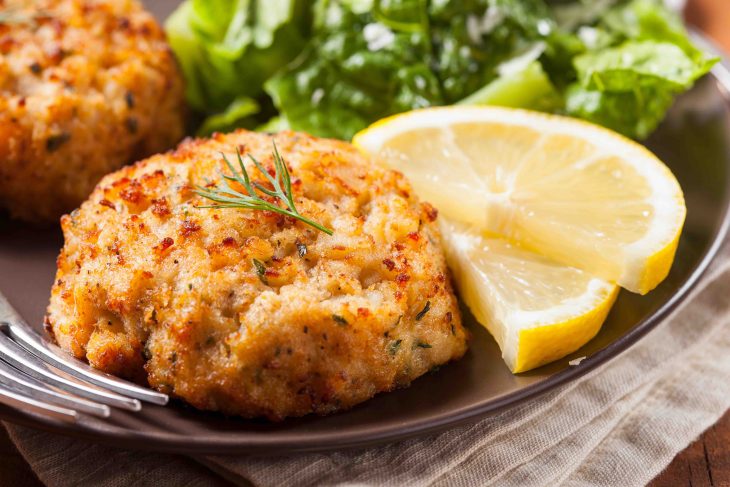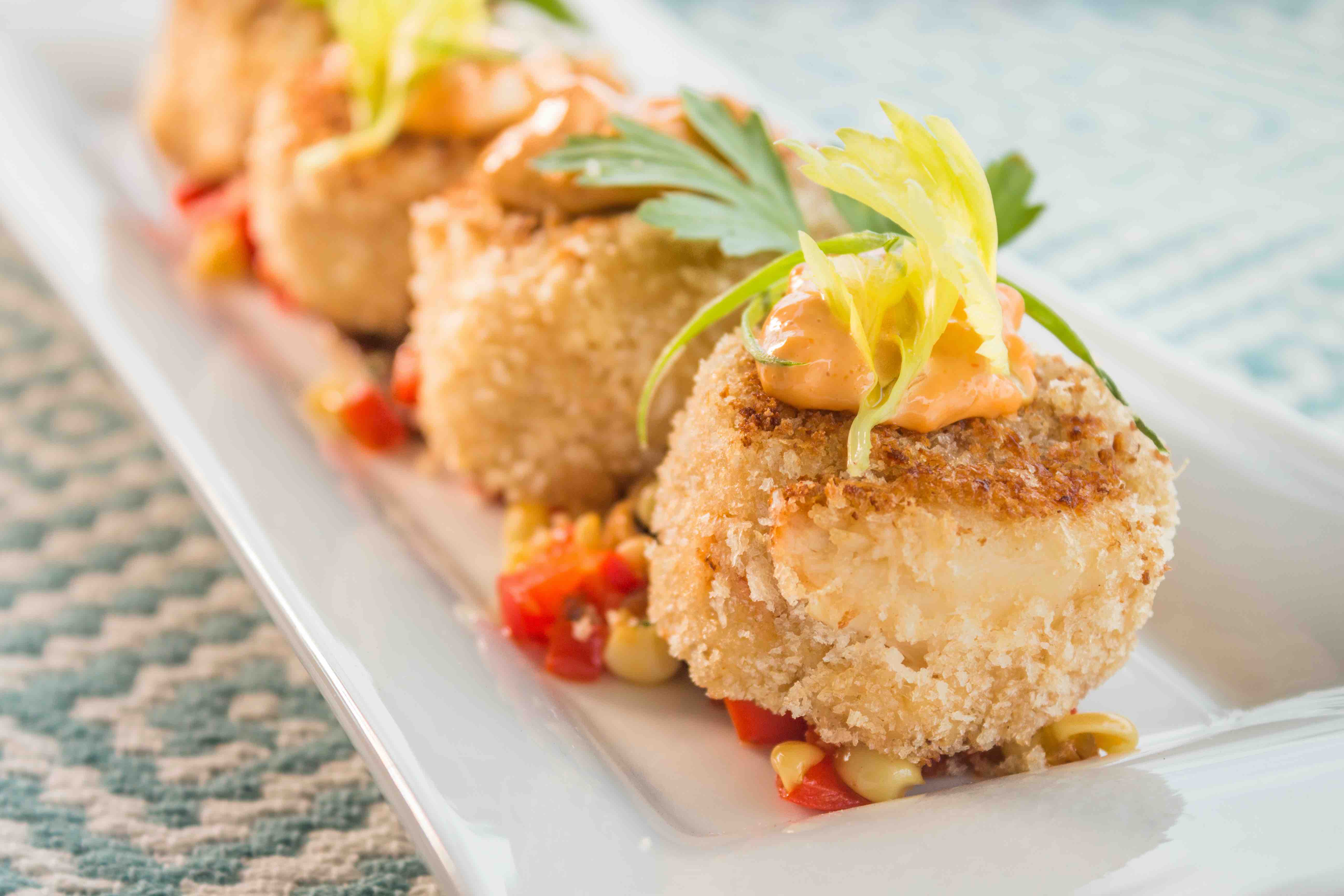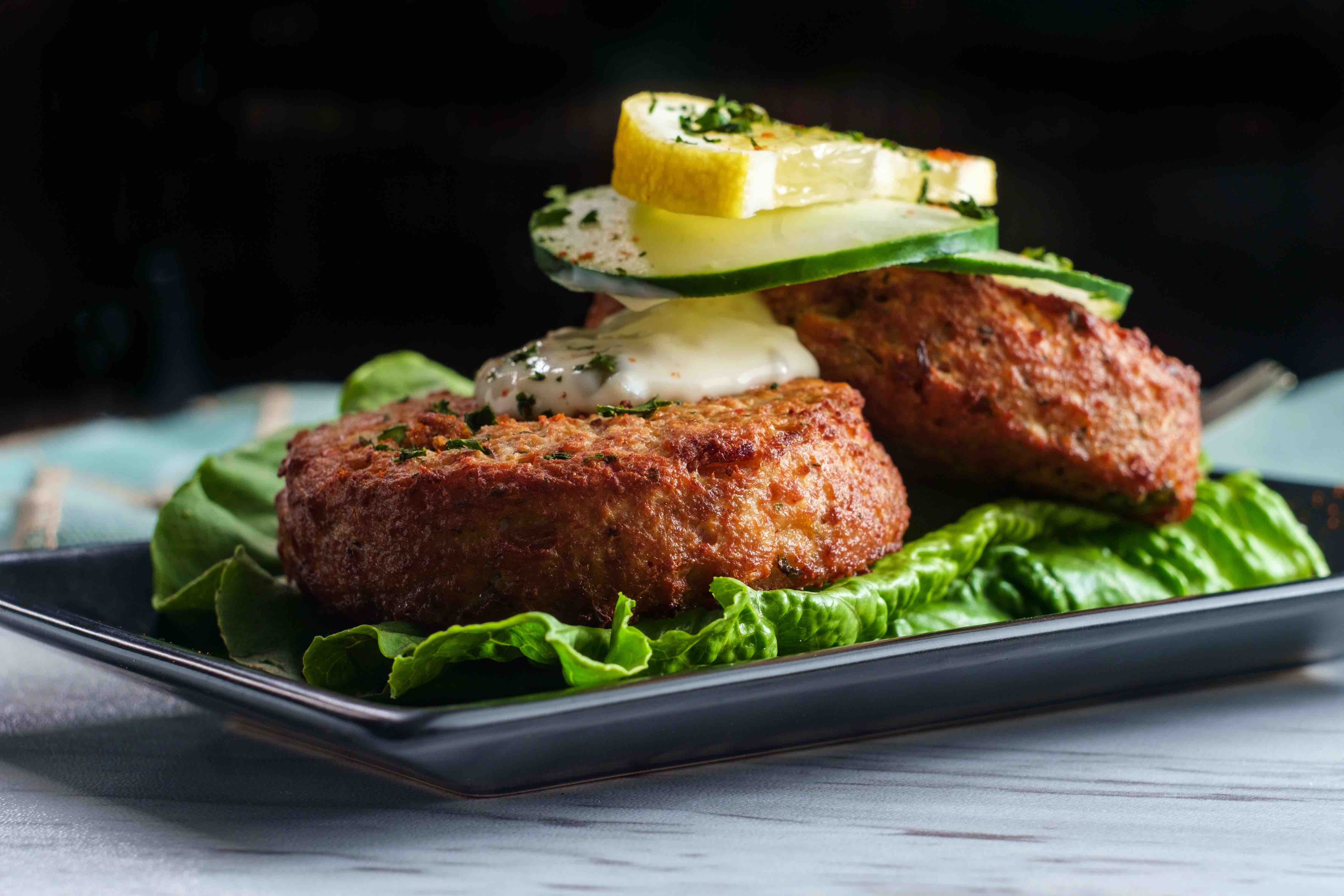
Crab cakes are a beloved culinary masterpiece or a real-life crabby patty. These delightful delicacies are cherished for their succulent taste and delightful texture. But have you ever pondered what nutritional values these seafood stars hold? Let’s dive deep into 15 crab cake nutrition facts to understand better what makes them more than just a sumptuous meal.
Calories in Crab Cakes
The caloric content of crab cakes can vary significantly depending on the recipe. On average, a homemade 3-ounce crab cake contains approximately 120 to 160 calories, making it a moderate-calorie food item.
Protein Powerhouse
Crab cakes are an excellent source of high-quality protein. A 3-ounce serving provides around 14 grams of protein, making it a valuable addition to any protein-rich diet.
Fats in Crab Cakes
Crab cakes can contain a moderate amount of fat, approximately 6 to 10 grams per 3-ounce serving. It’s essential to note that the type of fat matters—while seafood contains heart-healthy omega-3 fatty acids, the addition of mayonnaise or frying the cakes can add less-healthy saturated fats.
Carbohydrates
Crab cakes do contain carbohydrates due to the breadcrumbs or filler used. A 3-ounce serving usually contains around 7 to 15 grams of carbohydrates.

Sodium
One nutritional factor to be aware of with crab cakes is their sodium content. Due to the nature of seafood and seasonings used, crab cakes can be high in sodium. A single serving can contain around 500 to 800 milligrams, which is about a third of the recommended daily limit. Sodium is a crucial factor to consider when eating crab cakes.
Rich in Vitamins
Crab cakes are a good source of vitamins, especially B vitamins like B12, niacin, and folate. Vitamin B12 is essential for brain function and the production of red blood cells.
Mineral-rich Delicacy
Crab cakes contain a wealth of minerals. They are rich in selenium, zinc, and copper, which are vital for maintaining a healthy immune system and aiding metabolic processes.
Cholesterol Content
Crab meat does contain cholesterol. However, paired with its rich nutrient profile and the fact that dietary cholesterol doesn’t influence blood cholesterol levels as much as once thought, it can still fit into a balanced diet.
The Cooking Method Matters
The nutritional profile of crab cakes can change significantly based on the cooking method. For example, baking or grilling crab cakes is usually a healthier choice compared to frying, which increases the fat and calorie content.
Sauces and Accompaniments
What you pair with your crab cakes can also impact their nutritional value. Creamy sauces or buttery sides can significantly increase the calorie and fat content of your meal. Opting for healthier accompaniments like a side salad or steamed vegetables is a more nutrition-conscious choice.

Crab Cakes: A Dietary Chameleon
Crab cakes can be adapted to suit various dietary preferences. For example, gluten-free crab cakes can be made using gluten-free breadcrumbs, and dairy-free versions can be made by avoiding ingredients like cream or cheese.
Crab Cakes as a Part of a Balanced Diet
While crab cakes are nutrient-rich, they should be consumed as a part of a balanced diet. Pair them with fiber-rich vegetables and whole grains for a well-rounded meal.
Allergen Alert
For individuals with shellfish allergies, crab cakes are, unfortunately, off the menu. If you’re preparing crab cakes for someone with food allergies, always ensure you are aware of their dietary needs.
Canned Crab vs. Fresh Crab
The type of crab used in your cakes can impact their nutritional value. Canned crab may contain added sodium, while fresh crab is generally lower in sodium and has a more potent nutrient profile.
The Healthiest Crab Cake: Your Own Creation
Creating your own crab cakes at home allows you to control the ingredients, adjust the sodium, and choose the cooking method, thereby customizing the nutrition to suit your dietary goals.
Final Word
From protein content to adaptability for different dietary needs, these 15 crab cake nutrition facts illuminate why this seafood delicacy is more than just a treat for your taste buds. Remember, a balanced diet is key, and moderation is the secret to enjoying your favorite foods while keeping your health in check. Happy eating!
Was this page helpful?
Our commitment to delivering trustworthy and engaging content is at the heart of what we do. Each fact on our site is contributed by real users like you, bringing a wealth of diverse insights and information. To ensure the highest standards of accuracy and reliability, our dedicated editors meticulously review each submission. This process guarantees that the facts we share are not only fascinating but also credible. Trust in our commitment to quality and authenticity as you explore and learn with us.
